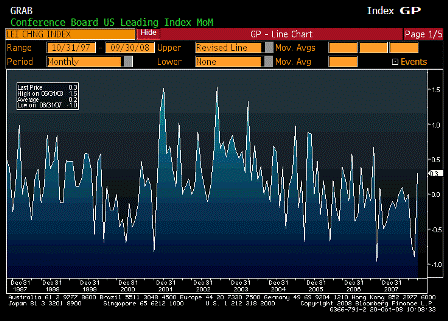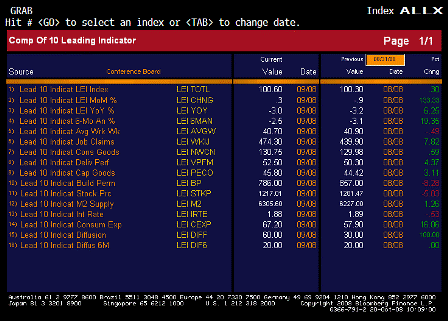What do you see happening in the next 6 months?
Negative US GDP likely until the budget deficit gets high enough to reverse it, much like 2001-2003.
Back then the very large (and retroactive) fiscal package turned the tide, not monetary policy.
Doesn’t look like an immediate $500 billion+ fiscal package is in the cards anytime soon.
Particularly with Congress thinking they just ‘spent’ $700 billion.
Banking problems lingering on but interbank lending will no longer be an issue.
Lots of traditional bank closures by the FDIC as the slowing economy results in more main stream business failures and loan losses.
Accelerating use by the 4 CB’s of the Fed’s unlimited USD swap lines as those demands grow as well.
If the Fed cut them off, for example, as their total borrowings soar past $1 trillion, their currencies and economies would all head towards collapse.
This is NOT good!
And I’m not always this negative. For the last year and a half I’ve been about the only one saying ‘no recession’ for a while due to government spending, exports, and our pension funds ‘monetizing’ their assets with passive commodity investments. (All this was in past blogs and emails.)
Then something snapped in July/August,
Probably triggered by the collapsing oil prices as Mike Masters successfully got Congress to at least discourage our pension funds from their sector shift to passive commodities.
This also removed aggregate demand, and falling commodity prices also cut the import bill of the US, thereby hurting foreign demand.
Potentially the fall in crude will help the US consumer but that takes a while, especially when the media has driven him into a foxhole, as evidenced by the rising ‘savings rate’ (which is mainly the ‘flip side’ of the rising US budget deficit. Government deficit = non government savings, etc.)
Fortunately it is ultimately all self correcting- the automatic stabilizers will increase deficits until they are large enough to turn the world economies.
Except for in the Eurozone where rising deficits can make the member nations insolvent.
Bottom line= we need a US payroll tax holiday NOW to keep it all from getting a lot worse.
[top]




